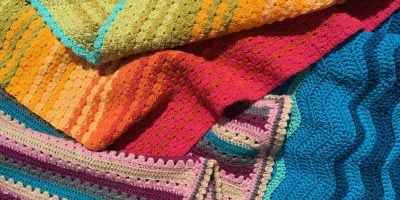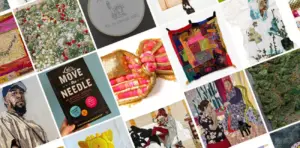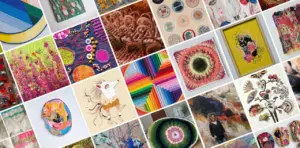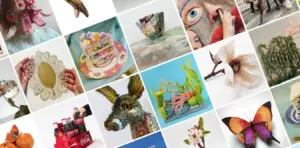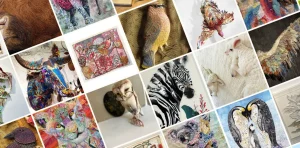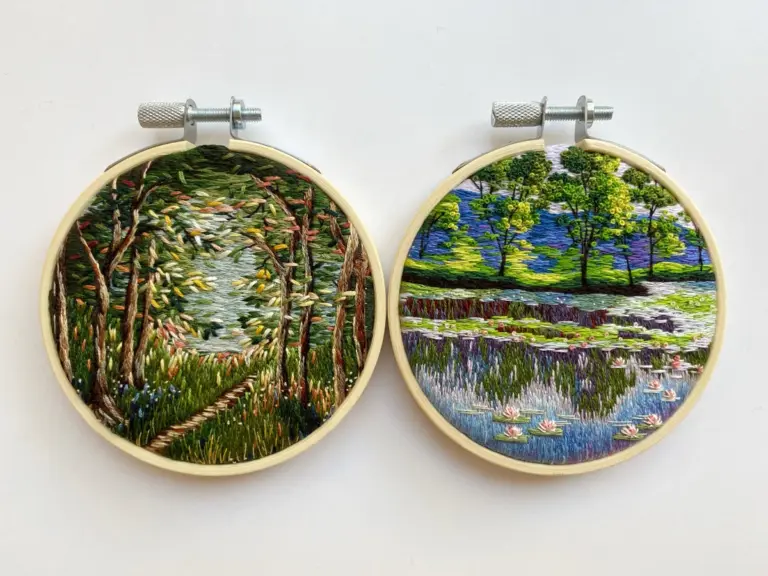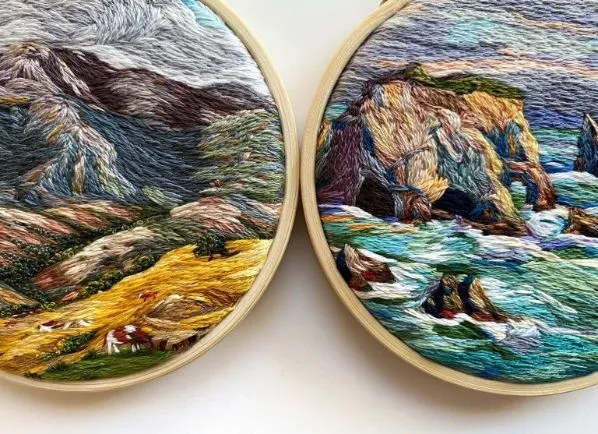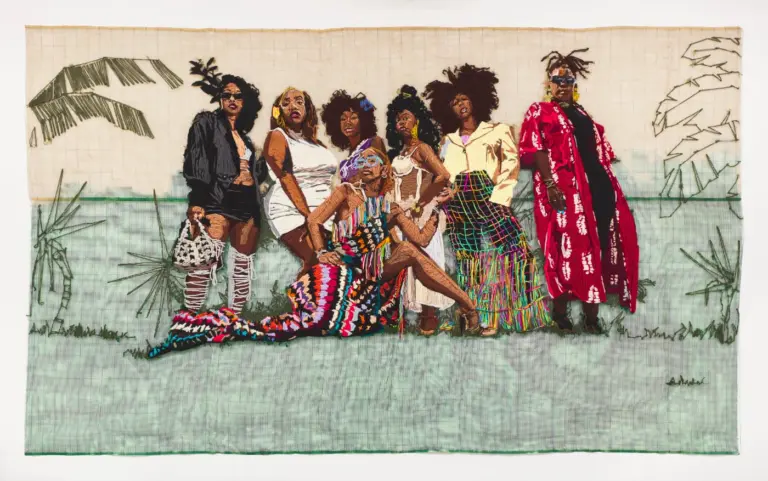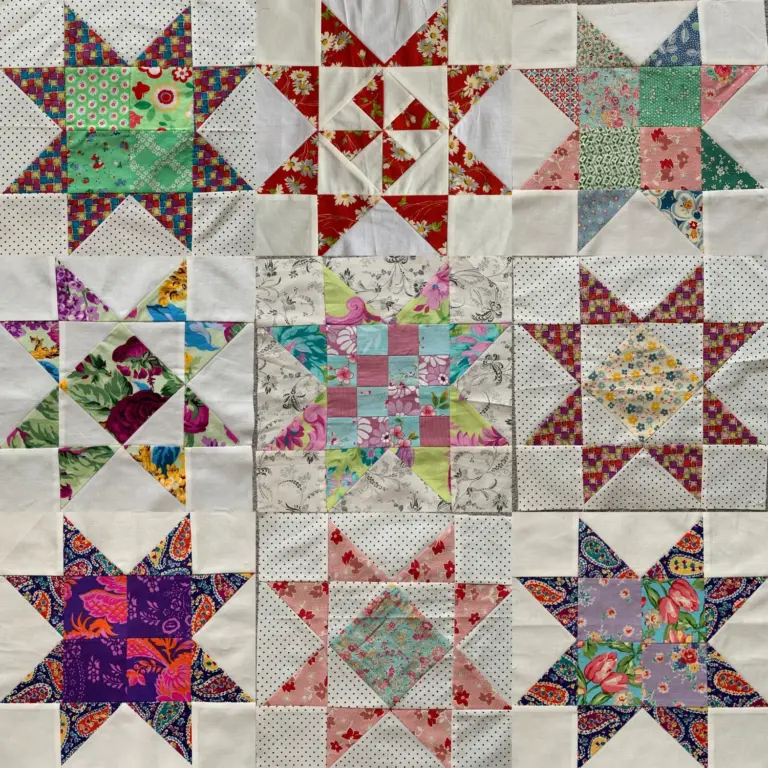From childhood crafting sessions with her mum to exploring everything from patchwork to bookmaking, Sue Bolton has always been a maker at heart. But it wasn’t until later in life, when family responsibilities eased and time became her own, that she was able to fully embrace her creative path. Eager to explore a wide range of textile techniques and prove to herself that she could commit to a structured programme, Sue enrolled onto our City & Guilds accredited Textiles Skill Stage 2 course.
What followed was a transformative experience—one that didn’t just deepen her technical skills, but helped her gain confidence, clarity, and the courage to consider turning her passion into a small business. Through in-depth design work, hands-on experimentation, and the support of expert tutors, Sue uncovered not only new techniques but a newfound belief in her own creative potential. Read on to discover how this transformative course helped Sue unlock a lifelong dream and inspired the next chapter in her creative journey.

“The course has helped me believe more in my abilities… I have learned new things about myself, artists, the design process, and different textile techniques. My confidence has grown, and I am thrilled with my final assessment piece because it is my unique design, which I am proud to say I made.”
Sue Bolton
I have always been a maker, drawn to the arts and crafts, but was encouraged to take ‘a more academic route’ at school. My mother taught me to knit, sew, and crochet when I was young. I have explored other crafts since, including patchwork and quilting, dyeing, hand embroidery, and making books. I have made clothes, home items, accessories and more recently textile art pieces.
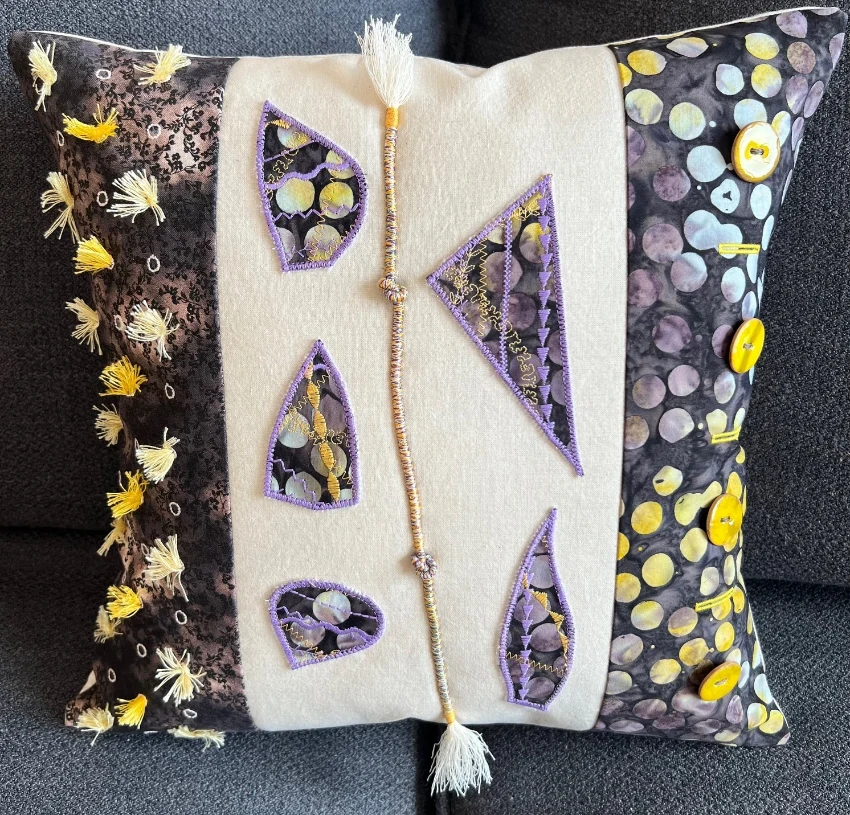
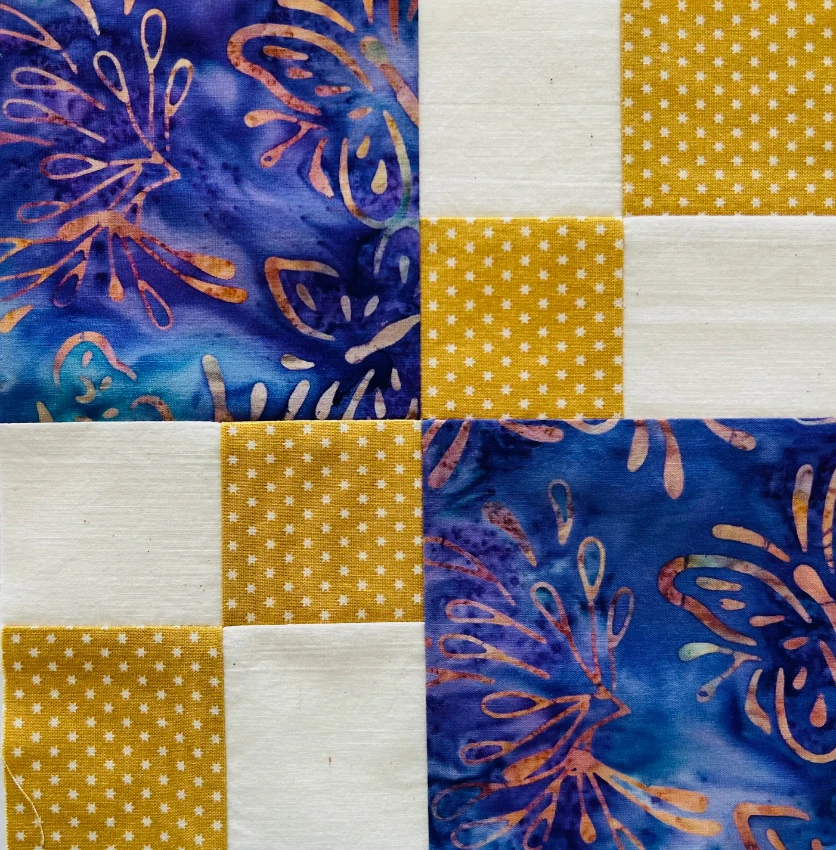
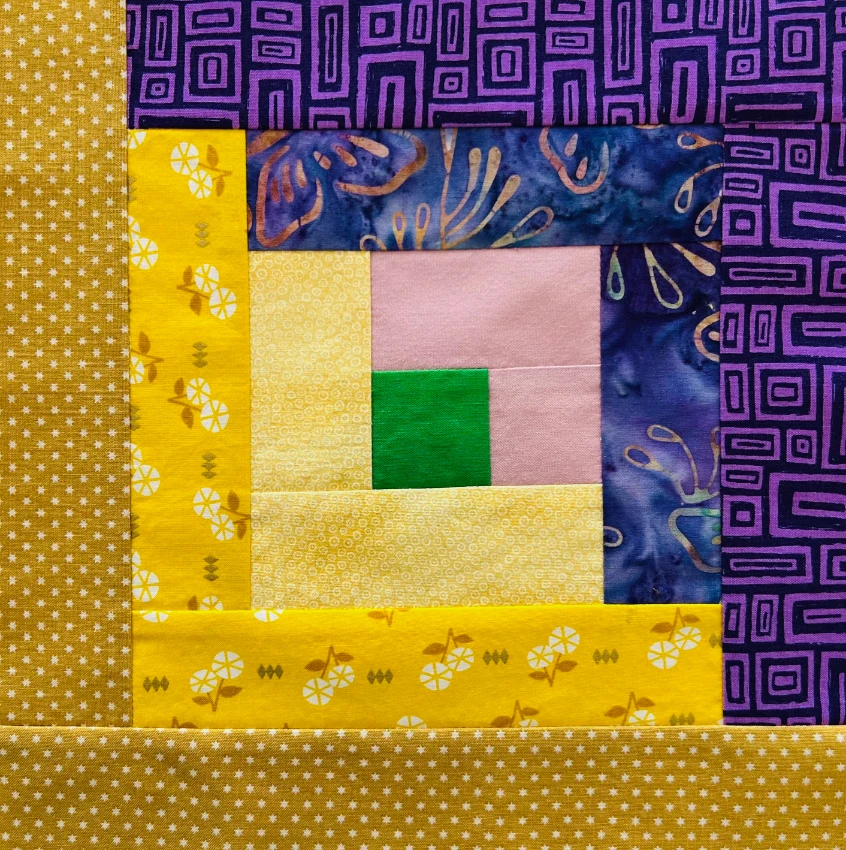
Motivation
My family are grown up and I have the time now to study what I would like to have pursued years ago. I began learning with the School of Stitched Textiles by enrolling onto a non-accredited introductory course in crochet. This gave me a good opportunity to sample one of the courses. I enjoyed it but didn’t want to restrict myself to crochet alone, so when I enrolled onto an accredited course, I chose Textiles for its variety of techniques.
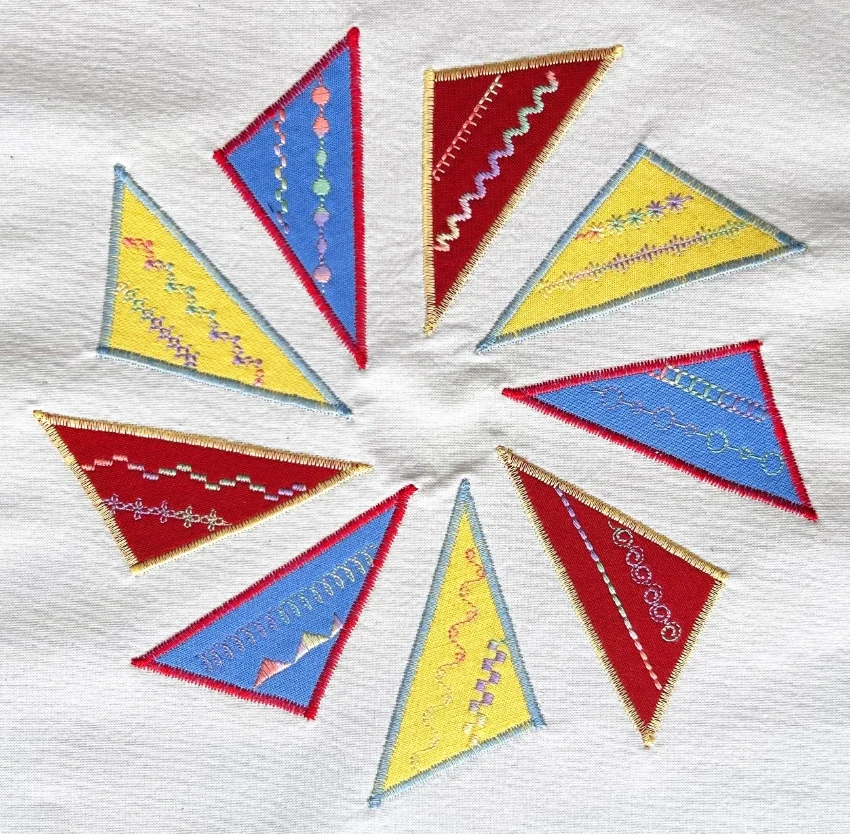
When I chose to study Textiles as an accredited course, I was curious to see if I could commit to the work and where it might lead. I wanted something structured with a qualification that is recognized and could be used for employment or further study. I am aware of the City and Guilds qualifications, their standard of excellence and reputation. Finding a course at a reasonable cost was proving a challenge, so when I discovered the School of Stitched Textiles, I was excited. The fact that the courses are online is an advantage for me as I live in the USA, and doing the course from here is very straight forward.
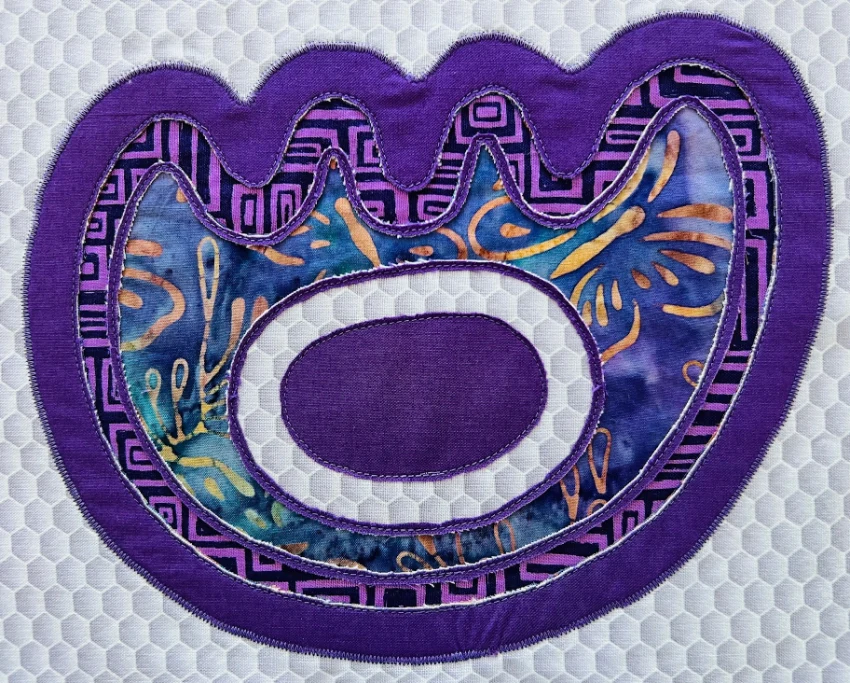
Transformative Course
The course has helped me believe more in my abilities. Last November, I completed Textiles Skill Stage 2, proving I can commit to a course, do the work, and get the qualification. I have learned new things about myself, artists, the design process, and different textile techniques. My confidence has grown, and I am thrilled with my final assessment piece because it is my unique design, which I am proud to say I made.
I decided to continue with the next Skill Stage 3 in Textiles because I want to develop my skills further. I have the beginnings of an idea for a possible small business venture, so I have begun preliminary research into small businesses aligned with my interests.
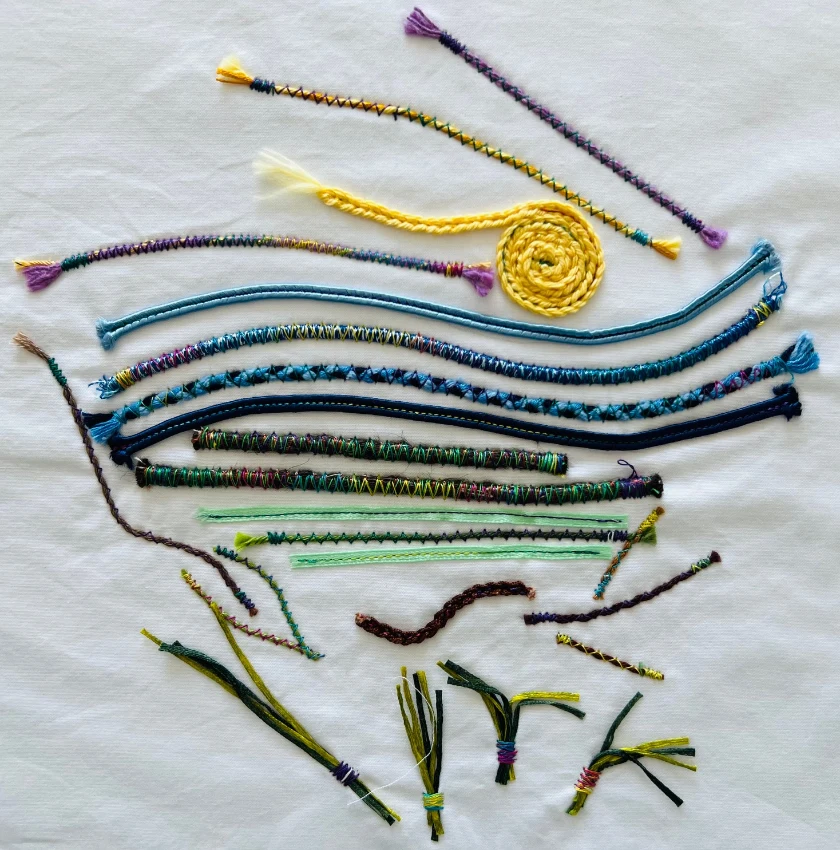
Advice for New Students
I would highly recommend the course and the school. The City and Guilds courses are of an extremely high standard and well structured. The staff and tutors are always willing to help and answer questions and do so in a timely manner. There are regular support sessions to help students with different aspects of the course, which include an important social element.
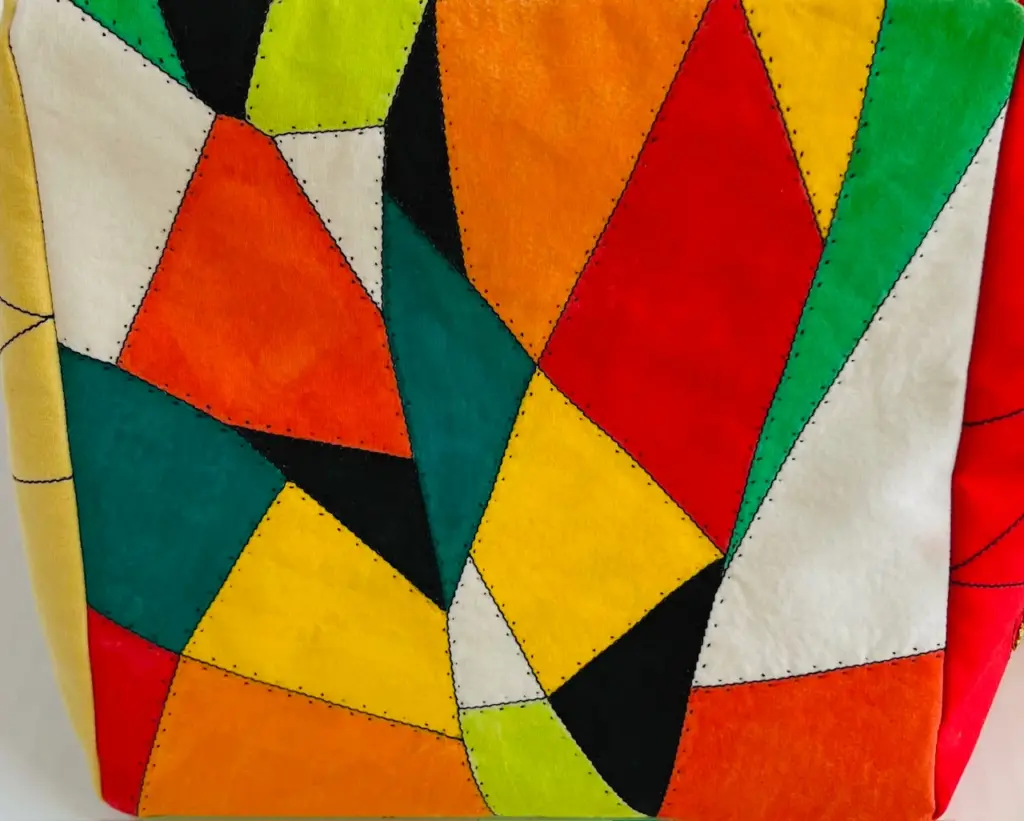
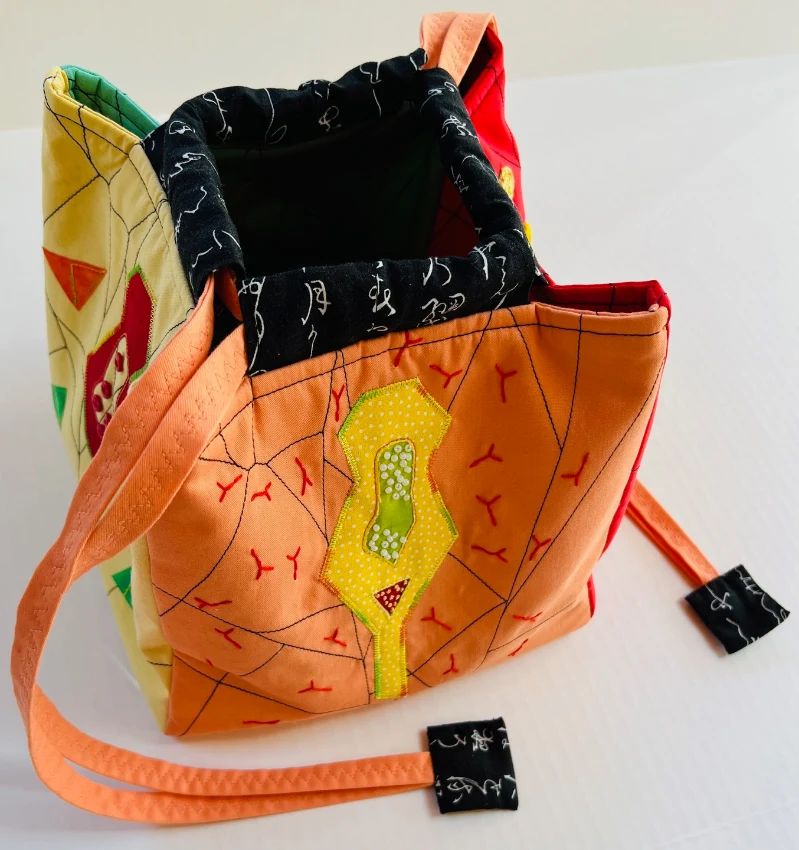
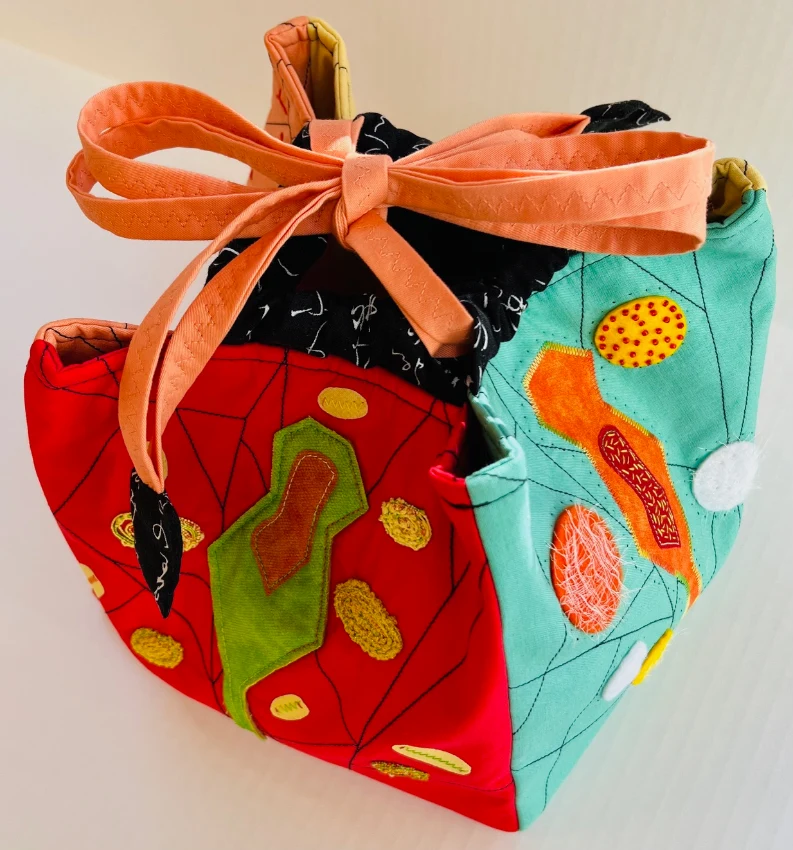
Most importantly, enjoy the experience!
Don’t hesitate to contact your tutor or the office depending on your questions or queries and join in the support sessions as much as possible; it will only improve your experience. My tutor is very encouraging and supportive with her suggestions and comments. Everyone is very approachable and helpful.
Learn to manage your time. Make a work plan for each module and follow it regularly. Allow extra time for work during the holidays, when you have visitors or when you’re not feeling well. I try to do as much work as possible at the beginning of a module to allow for ‘life.’
Organize your work area, books, fabrics, threads, and needles so it is easy to find them. This is an ongoing task for me which I do a little at a time. Get acquainted with the technological side of things if needed and take lots of photographs to back up your research and work.
Learn how you work best. This is important for self-awareness, developing your work style and module evaluations. I keep a notebook handy and make notes of anything I feel is important. Consequently, I have discovered I work methodically but slowly, which is sometimes frustrating. However, if I try to work too quickly, I make mistakes. So, I am learning to embrace my pace! Follow Sue on Instagram.

